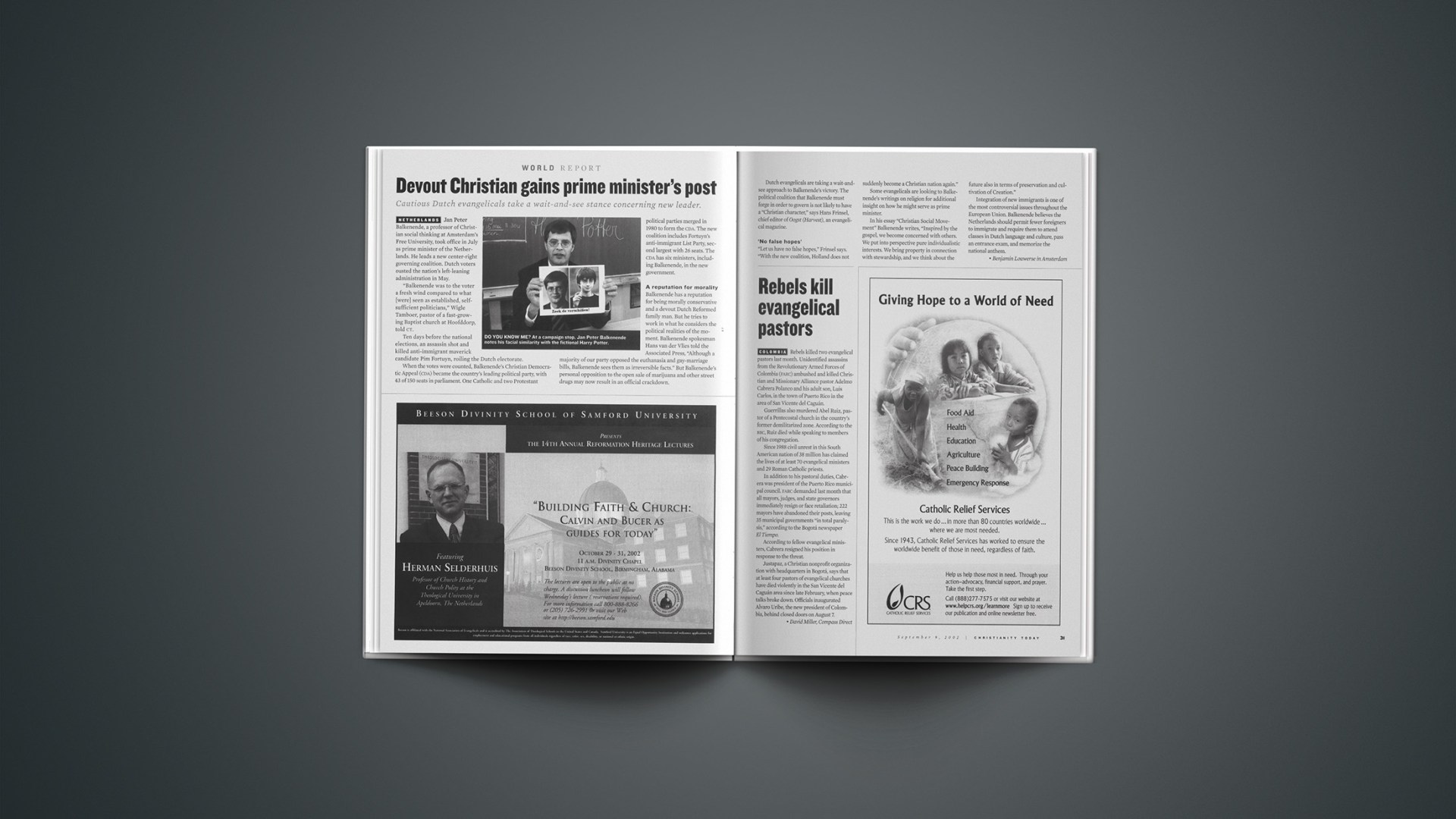Jan Peter Balkenende, a professor of Christian social thinking at Amsterdam’s Free University, took office in July as prime minister of the Netherlands. He leads a new center-right governing coalition. Dutch voters ousted the nation’s left-leaning administration in May.
“Balkenende was to the voter a fresh wind compared to what [were] seen as established, self-sufficient politicians,” Wigle Tamboer, pastor of a fast-growing Baptist church at Hoofddorp, told CT.
Ten days before the national elections, an assassin shot and killed anti-immigrant maverick candidate Pim Fortuyn, roiling the Dutch electorate.
When the votes were counted, Balkenende’s Christian Democratic Appeal (CDA) became the country’s leading political party, with 43 of 150 seats in parliament. One Catholic and two Protestant political parties merged in 1980 to form the CDA. The new coalition includes Fortuyn’s anti-immigrant List Party, second largest with 26 seats. The CDA has six ministers, including Balkenende, in the new government.
A reputation for morality
Balkenende has a reputation for being morally conservative and a devout Dutch Reformed family man. But he tries to work in what he considers the political realities of the moment. Balkenende spokesman Hans van der Vlies told the Associated Press, “Although a majority of our party opposed the euthanasia and gay-marriage bills, Balkenende sees them as irreversible facts.” But Balkenende’s personal opposition to the open sale of marijuana and other street drugs may now result in an official crackdown.
Dutch evangelicals are taking a wait-and-see approach to Balkenende’s victory. The political coalition that Balkenende must forge in order to govern is not likely to have a “Christian character,” says Hans Frinsel, chief editor of Oogst (Harvest), an evangelical magazine.
‘No false hopes’
“Let us have no false hopes,” Frinsel says. “With the new coalition, Holland does not suddenly become a Christian nation again.”
Some evangelicals are looking to Balkenende’s writings on religion for additional insight on how he might serve as prime minister.
In his essay “Christian Social Movement” Balkenende writes, “Inspired by the gospel, we become concerned with others. We put into perspective pure individualistic interests. We bring property in connection with stewardship, and we think about the future also in terms of preservation and cultivation of Creation.”
Integration of new immigrants is one of the most controversial issues throughout the European Union. Balkenende believes the Netherlands should permit fewer foreigners to immigrate and require them to attend classes in Dutch language and culture, pass an entrance exam, and memorize the national anthem.
Copyright © 2002 Christianity Today. Click for reprint information.
Related Elsewhere
More information on Jan Peter Balkenende appears to be available both on his campaign site and the official prime minister page, but neither are in English.
Other articles on his election include:
Dutch veer to right after candidate’s killing—The New York Times (May 15, 2002)
Dutch push Europe further right—The Washington Post (May 16, 2002)
For more news on the Netherlands, see Yahoo! full coverage and Christianity Today’sWorld Report.










